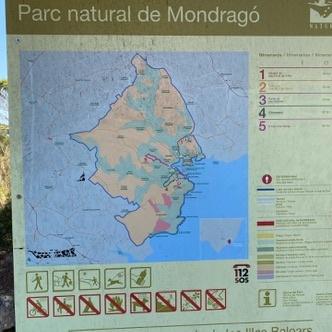How might hikers and nature enthusiasts avoid disturbing habitats that are vulnerable due to giant reed invasion?
Similar Topics
giant reed invasion
avoid disturbing habitats
stay on trails
invasive plant spread
protect native ecosystems
responsible hiking
sensitive areas protection
community invasive management
Hikers and nature enthusiasts can take careful measures to avoid disturbing habitats vulnerable to giant reed invasion by first staying on established trails and avoiding off-path exploration. This ensures that sensitive areas are not trampled, which can exacerbate the spread of invasive plants like giant reed. By keeping to designated paths, visitors reduce the risk of inadvertently transporting seeds or fragments of the reed on their shoes or clothing, which can facilitate further invasion. Additionally, many reserves or protected areas may have specific rules or signage highlighting vulnerable zones; attentiveness to such information supports habitat conservation efforts.
It is also important to minimize the introduction of disturbance through equipment or waste. Carrying out all trash and avoiding bringing plant material into these environments helps maintain the delicate balance of native ecosystems. Where giant reed has already established, hikers should refrain from attempting to remove or disturb the plants themselves unless part of an approved restoration project, as improper handling can worsen the problem. Supporting guided tours or participating in community efforts aimed at invasive species management can be a more effective way to contribute positively.
By fostering an understanding of the ecological impacts of giant reed invasion, nature enthusiasts can appreciate the importance of these prevention strategies. Giant reed outcompetes native vegetation by monopolizing water resources and creating dense thickets that reduce habitat diversity. This loss of biodiversity affects not only plants but also the animals that rely on native flora for food and shelter. Practicing responsible hiking behaviors—such as avoiding sensitive riparian zones and refraining from creating new paths—helps protect these fragile habitats, allowing native species a chance to recover and thrive. Ultimately, thoughtful engagement with nature ensures that the enjoyment of wild spaces does not come at the expense of their ecological health.
It is also important to minimize the introduction of disturbance through equipment or waste. Carrying out all trash and avoiding bringing plant material into these environments helps maintain the delicate balance of native ecosystems. Where giant reed has already established, hikers should refrain from attempting to remove or disturb the plants themselves unless part of an approved restoration project, as improper handling can worsen the problem. Supporting guided tours or participating in community efforts aimed at invasive species management can be a more effective way to contribute positively.
By fostering an understanding of the ecological impacts of giant reed invasion, nature enthusiasts can appreciate the importance of these prevention strategies. Giant reed outcompetes native vegetation by monopolizing water resources and creating dense thickets that reduce habitat diversity. This loss of biodiversity affects not only plants but also the animals that rely on native flora for food and shelter. Practicing responsible hiking behaviors—such as avoiding sensitive riparian zones and refraining from creating new paths—helps protect these fragile habitats, allowing native species a chance to recover and thrive. Ultimately, thoughtful engagement with nature ensures that the enjoyment of wild spaces does not come at the expense of their ecological health.
🧩 Related Questions
Related Question
How does the local atmosphere in Portocristo differ between summer and winter seasons?
Related Question
How has Maria del Mar Bonet influenced the preservation of traditional Mallorcan music through her concerts?
Related Question
What seasonal vegetables are commonly harvested in Mallorca throughout the year?
